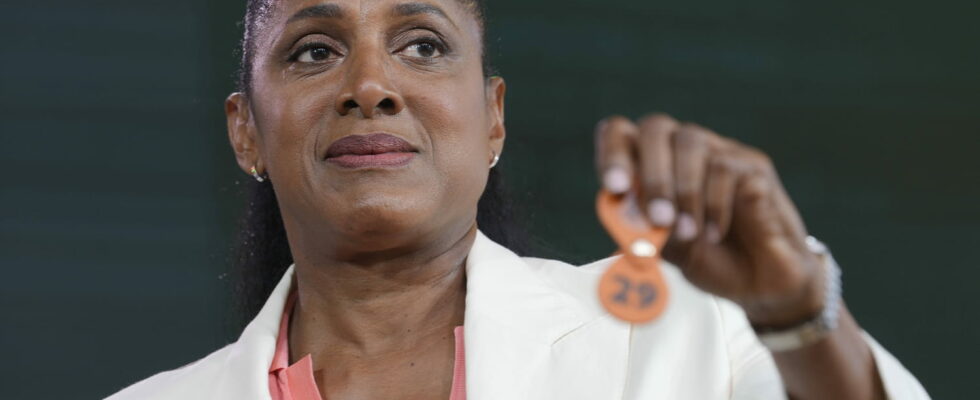A triple Olympic champion, Marie-José Pérec is a legend of French sport. But she is also an athlete committed to promoting her island: Guadeloupe.
Marie-José Pérec made history at the Olympic Games in France, with a record three Olympic gold medals in athletics, in 1992 in Barcelona in the 400 meters, and in 1996 in Atlanta in the 200 and 400 meters. She was also the only athlete to retain her women’s 400m title until Shaunae Miller, who achieved the double in 2016 and 2021. Nearly 30 years after her titles, the runner from Guadeloupe still holds the French records for both disciplines.
Since the end of her career, Marie-José Pérec has been particularly involved in the training of future athletes, and in particular mental preparation. The shy woman has also opened up. For example, she explains in an interview with Madame Figaro the motivations that allow each athlete to perform. For her, this came first from a fight against shyness: “I didn’t know how to express myself very well in public and I withdrew. I always told myself: don’t say anything, run instead, your victories will speak for you.”
But another dynamic pushed her to move forward and train to get her titles: that of fighting racist prejudices about her Guadeloupean origins. “I wanted to show that the West Indians were not lazy, fairground animals that were made to dance. I wanted to be a spokesperson without having to speak. And for that, it had to be beautiful and triumphant. That my journey makes you want to look at history differently,” she said. A look back that also sounds like a rant.
Marie José Pérec has already spoken out about the racism she experienced when she started out and then throughout her career. Arriving in mainland France at just 16 to join Insep, she went through a difficult time according to Outre-mer la 1re, which wrote in 2021: “Impossible to get used to the coach, the atmosphere, in Paris. She begged her family to let her return to Guadeloupe. Then, a few weeks later, she came back and, thanks to a friend, she joined François Pépin’s team at PUC (Paris Université Club)”. In an online show the same year, she recounted an anecdote that happened in a store when she started out, where she had been very badly received.[…] “I was a black woman who had no place there,” she concluded, adding that she had drawn incredible energy from this ordeal: “For me, winning was necessary, and losing was death.” […] It gives you more strength.”
In the show A Sunday in the Countrysidemore recently, last June, she explained: “When I arrived in Paris at the age of 16, it was also the rise of the National Front in France. When I went to the post office, the old ladies didn’t hesitate to tell me to go home. When I hear people from the Antilles talk in France, they say that we’re nonchalant, that all we do is sing and dance […]. I heard all that and I told myself that I had found a way to show that the West Indians could have a project, they could go all the way. I wanted to be the voice of all these people. And that gave me incredible strength.”
The athlete continues to repeat that Guadeloupe is “the place where she feels best”. She remains very involved in the development of sport on the island, particularly through her role as President of the athletics league. And she returns the favor. “L’île papillon” inaugurated a track connected to her name at the end of 2020. It was also Marie-José Pérec who brought the Olympic flame to Guadeloupe a few weeks ago, welcomed and cheered by the locals.
